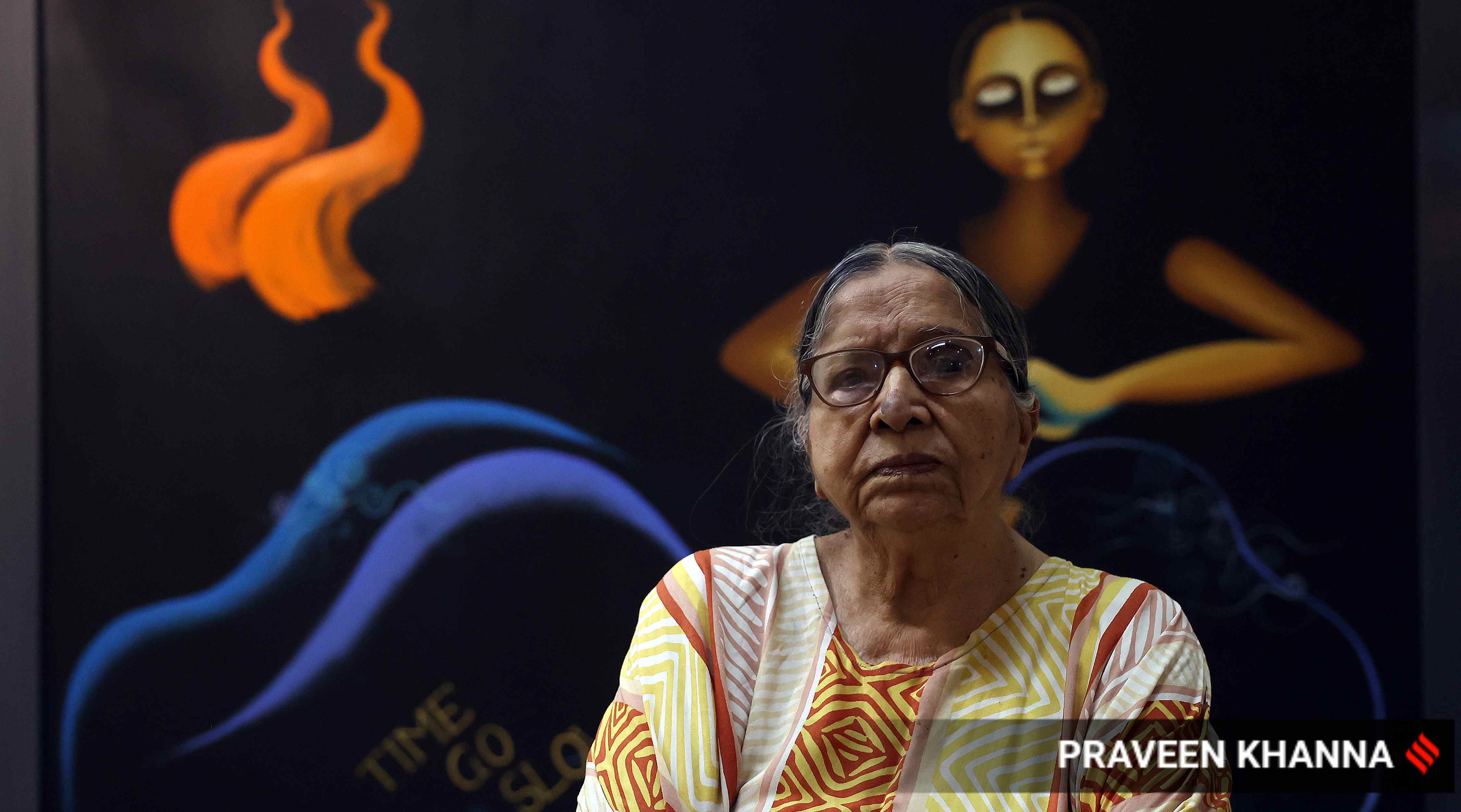 Artist Ajeet Cour in New Delhi. (Express photo by Praveen Khanna)
Artist Ajeet Cour in New Delhi. (Express photo by Praveen Khanna) When author Ajeet Cour first invited 10 writers from Pakistan for a conference in Delhi in 1987, thousands of people from across India came to listen to them, she recalls. “It was the first time writers from Pakistan set foot on Indian soil. There were prominent names such as Intizar Hussain and Ahmad Faraz. We had booked an auditorium at Triveni Kala Sangam that had seating capacity for around 600 people, but more than 5,000 turned up. It was like magic,” says Cour, 88.
As she prepares for another edition of the festival that will be held from November 6 to 9, she notes how there may have been numerous changes in the forum held under the FOSWAL (Foundation of SAARC Writers and Literature) banner over the years, but at its heart, it remains the same. “The region shares so much in common and our aim is to nurture that,” says the powerful voice in Punjabi literature, adding how numerous foreign writers have been returning to the festival and that she has regular discussions with prominent authors in the participating countries to invite new talent.
 Artist Ajeet Cour in New Delhi. (Express Photo by Praveen Khanna)
Artist Ajeet Cour in New Delhi. (Express Photo by Praveen Khanna) This year, while the keynote address will be given by sociologist Ashis Nandy, the guests of honour include writers Syed Manzoorul Islam from Bangladesh, Abhi Subedi from Nepal, Kanchana Priyakantha from Sri Lanka and Madhav Kaushik from India, among others.
While Pakistani authors have not been attending the festival for more than a decade, Afghanistan has not been a participant for two years. Being held online, Cour, the chairperson of FOSWAL, notes that apart from Covid, it is also a lack of funding that has led to the adoption of the digital format. “Beginning with no funding in 1987, since 1999 limited funds from the Ministry of External Affairs had been given to us. But since 2017 (when the last physical edition was held) our file is still in process as we did not have the return boarding passes for writers who had come for the festival that year. We have been writing letters to the ministry, but to no avail… The Sahitya Akademi helps us on the technical front,” says Delhi-based Cour.
Known to address socio-realist themes through her works, the author of numerous short stories also wrote about her own struggles in the autobiography Khanabadosh. “There are certain happenings in life that you cannot overcome and have to deal with,” says the writer whose personal life has been rather tumultuous – from witnessing the horrors of the Partition to being in an abusive marriage to losing her young daughter Candy in an accident in France.
Sustaining the festival has not been easy either. She notes that the festival is funded through the earnings of her daughter, renowned artist Arpana Caur. “It’s how we have managed to sustain this initiative that, I believe, is much needed, not just to foster cultural cooperation but also for discussions around literature,” says Cour.
While her health does not allow her to travel, she keeps abreast with the numerous literary festivals that are now being held across India. “It’s a good thing. Earlier, only dancers, musicians, singers used to get the stage, now writers are also being invited to be on the dais,” says Cour.